
I was with many of you for the journey that led to the adoption of the 2030 Agenda for Sustainable Development and the Paris Agreement on Climate Change.

I was with many of you for the journey that led to the adoption of the 2030 Agenda for Sustainable Development and the Paris Agreement on Climate Change.
The World Health Organisation (WHO) has confirmed the death of one person in the latest outbreak of Ebola in the Democratic Republic of Congo (DPR).
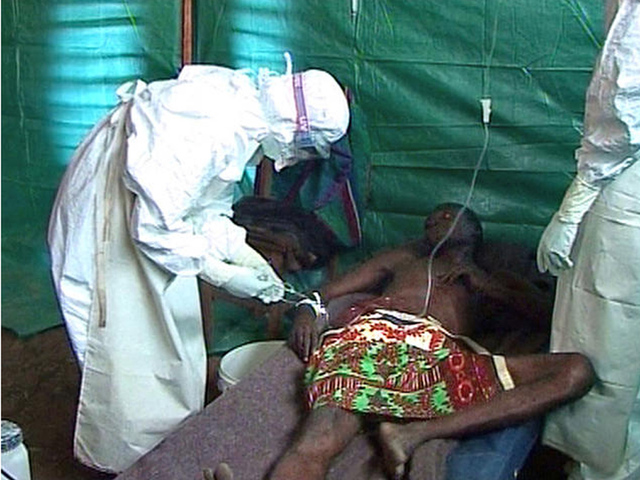
The Congo Ministry of Health notified the WHO of nine suspected cases of Ebola in the Aketi territory, in the north-eastern province of Bas-Uele, WHO spokesman Christian Lindmeier said.
Three people with the hemorrhagic fever have died, but only one death has been confirmed as resulting from the Zaire strain of Ebola.
Officials suspect that the two other deaths were also caused by the highly infectious virus, which spreads through contact with bodily fluids.
Symptoms such as fever, headache, muscle pain, fatigue, diarrhea, vomiting, abdominal pain and hemorrhaging can begin two to 21 days after exposure.
The Zaire strain of the virus is one of the most lethal. A 2007 outbreak of this strain in Congo had a fatality rate of 74%, claiming 200 lives.
There is no approved vaccine to prevent the virus, and there is no approved treatment or cure.
In 2014, more than 11,300 people were killed in the worst-ever outbreak of the virus in West Africa, most of them in Guinea, Sierra Leone, Liberia and Nigeria.
The Federal Government confirmed 198 Ebola cases in Nigeria as at August 2014 following the death of a Liberian, Patrick Sawyer, who flew in for a conference, and that of a Nigerian medical doctor, Stella Adadevoh, who attended to him.
This is the eighth epidemic of Ebola that Congo has faced.
The Council for Scientific and Industrial Research (CSIR) in Ghana has suspended trials of GMO cotton in the country after US Company Monsanto withdrew funding.

Monsanto, the world’s leading Genetically Modified Organism (GMO) seeds producer, is facing challenges in Burkina Faso after that country rejected GMO cotton and began a phased withdrawal of the novel products. Farmers have now returned to growing conventional seeds.
The trials being undertaken by CSIR scientists form part of regulatory requirements before the GMO cotton can be commercialised in Ghana. The development means there will be no GMO cotton for farmers to make use of anytime soon.
Work on the project froze in 2016 but a researcher at the Savaanah Agric Research Institute (SARI) of the CSIR and Principal Investigator on the project, Dr. Emmanuel Chamba, tells Joy News it’s now been officially suspended.
“After two years of the on-station confined field trials, the next step was to go to the farmers’ field. After which we will be thinking of commercial release. Unfortunately, because of the situation in Burkina Faso, Monsanto pulled out.
“And because Monsanto was funding the programme, they suspended it in Ghana also,” Dr. Chamba explained.
The GMO cotton, known as Bt cotton, has been engineered to naturally resist attacks by the bollworm insect and other pests. The trials began in 2012. It was supposed to last for about six years before the GMO cotton can get to the market.
The trials had proved promising as fewer pesticides were used on GMO cotton fields in the Northern Region, compared to conventionally-produced ones. Whilst cotton farmers have to spray fields up to six times within the cotton plant’s life cycle for conventional varieties, only two cycles of spray was needed on the GMO fields as the seeds had inbuilt resistance to the pests.
Dr. Chamba says farmers are worried they will not get the benefit of growing GMO seeds for a long time to come. “At the moment, we are going back to the conventional variety where they have to be spraying (pesticides) several times.
“Nobody wants to spray so many times. But because we have not concluded the experiment, farmers cannot grow that variety,” Dr. Chamba lamented.
Dr. Chamba, however, says they are not giving up. They are looking for fresh donor support to resume the trials in Ghana for the benefit of farmers. “If we can get money from any other place to finish the trial, we will welcome it and finish the trials,” he stated.
GMO cotton was made available to farmers in Burkina Faso in 2010 and, by 2013, 70 percent of all cotton grown in that country was GMO. But concerns arose that fibre produced from the GMO cotton was low compared to the conventional.
The cotton fibre resulting from GMO cotton reportedly had shorter length. But in the textiles industry, the length of the fibre is crucial because the longer ones allow for several spinning rounds thereby producing better quality textiles.
The shorter fibre resulting from GMO cotton drew protests from cotton companies in Burkina Faso, resulting in a decision in 2015 for a phased withdrawal of the GMO variety. The cotton companies accused Monsanto of deceit and made a formal request demanding 100 million US Dollars in compensation.
Edwin Baffuor of Food Sovereignty Ghana believes this is a lesson for Ghana not to adopt the technology. “The Burkina case shows clearly that some of the expected outcomes as promised the farmers won’t be realised. And this is part of the red flag that we have been raising for a while now. And it can’t be closer to home than this. The outcomes of GMOs are unknown in the long term,” he told Gakpo in an interview.
Food Sovereignty Ghana is not the first organisation to raise this red flag. Associate Professor at the Department of International Development Studies at Dalhousie University in Canada, Prof. Matthew A. Shnurr who has done extensive research on the impact of GMO crops on African economies, issued a similar caution in the past.
“These problems with poor quality lint resulted from the introgression of the Bt trait into the local variety. If Ghana is planning on replicating this same process, they might risk producing similar results,” he said.
“I am skeptical that GM cotton or maize will offer benefits to small-scale African farmers,” he added.
But Plant Breeder with Burkina Faso’s National Research Institute Dr. Edgar Traore insists the technology did not fail his people. He says work is ongoing to correct the errors that resulted in the poor fibre quality and get the GMO cotton back on the market.
“The technology is good, but the technology met a technical problem that has a solution. So even [members of] the association which was behind the decision to go back to commercial, they are still waiting for better varieties with longer fibre so they can go back to GMOs,” he told Gakpo.
Courtesy: Joy News, Ghana
Countries can achieve the UN Sustainable Development Goals (SDGs) by prioritising investments and policies that bolster positive relationships across the goals, says a new report released today by the International Council for Science (ICSU). The report examines the interactions between the SDGs – a universal set of goals to guide international development to 2030 – and applies a quantitative scale to determine the extent to which they reinforce or conflict with each other.

The report, entitled “A Guide to SDG interactions: from Science to Implementation”, offers a blueprint to help countries implement and achieve the 17 goals and the 169 targets that sit underneath them. The ICSU report is a first-of-its-kind attempt to quantify SDG synergies and conflicts. ICSU, leading a consortium of 22 scientists, applied a seven-point scale ranging from +3, which applies when one goal or target is very reinforcing of others, to -3, which applies when goals and targets fundamentally conflict with each other.
The SDGs, which were adopted by the international community in 2015, cover a diverse range of issues including gender equity, sustainable cities, access to clean water, and good governance. The aim is for all countries to achieve the goals and their targets by 2030 and set the world on a path towards sustainable development.
“This report demonstrates the unique role that science can and must play in the implementation of the SDGs. We combined the rigor of scientific thinking with the in-depth expertise of scientists from diverse fields like agronomy, oceanography, and epidemiology. The result was an independent analysis that can help policymakers and others engage with the goals and define their own priorities,” said ICSU Executive Director Heide Hackmann.
The report found that most goals were synergistic but not equally so. For example, one of the strongest relationships was that ensuring access to modern energy for all would go a long way toward combatting climate change and decreasing death and illness from pollution – all aspects of different SDGs. Another positive connection exists between growing the economy and improving health and well-being. Economic growth allows government to increase spending on healthcare, but only if they practice good governance and smart decision-making.
The scale also highlighted where there are conflicts and tradeoffs between SDGs. One major conflict is that achieving food for all could impact efforts to conserve and restore ecosystems. Efforts to end hunger and achieve food security could involve agricultural practices that limit the availability of clean water and renewable energy. Increased agricultural production, if not sustainable, can also result in deforestation and land degradation, jeopardising long-term food security. A careful balance is needed between initiatives to achieve these goals.
“This report provides a concrete entry point and tool to engage with the complex web of SDGs, and make them a reality. For the first time, policymakers will be able to look at the goals as a comprehensive set and understand how they reinforce each other, and where there are tensions. Leaders can use this information to minimise tradeoffs, prioritize investments, and make coherent policies. Scientists have a major role to play in piecing the available evidence together to support that process,” said Anne-Sophie Stevance, lead coordinator of the report.
The process of researching and compiling the report had its own revealing outcomes. “We brought together very different scientists to create a common way of talking about and scaling the SDGs. They didn’t always agree – there were many heated discussions – but they did it. Achieving the SDGs requires that we all follow this example, break down siloes, and work together,” added Stevance.
The report is being launched at the Forum on Science, Technology and Innovation for the Sustainable Development Goals at the United Nations in New York (15-16 May). This is the second edition of a multi-stakeholder event that brings together the scientific, technology, civil society and business communities with a common interest in making the SDGs a reality. The SDGs, which were adopted by the international community in 2015, cover a diverse range of issues including gender equity, sustainable cities, access to clean water, and good governance. It is a big, unwieldly, ambitious agenda that – if it is successfully implemented – could set the world on a course toward inclusive, sustainable development.
The report includes a set of recommendations for future efforts to apply the seven-point scale in countries around the world. The recommendations include identifying the interactions between and among the 17 SDGs in each country, and mapping who can do what to achieve the goals – and where there are capacity gaps. The report further calls for creating mechanisms to increase cross-sector coordination, and monitoring and evaluating progress in the lead-up to 2030.
Do you believe in the adage that the stone that the builder rejects makes the cornerstone of the house?

This saying appeared to play itself out on Friday when Chelsea’s reject Michy Batshuayi scored the winning goal against West Bromwich Albion to give the London team the Premier League title. The title was won with eight minutes left as substitute Batshuayi ended a scrappy passage of play by steering a finish high past WBA goalkeeper Ben Foster.
Batshuayi’s left footed shot from close range to the centre of the goal, assisted by Cesar Azpilicueta, came in the 82th minute. Which means Chelsea won its sixth top-flight title, making it the first club to win the English top-flight title on a Friday, since Arsenal at Anfield in 1989.
Antonio Conte is the fourth Italian Manager to win English top-flight title after Ancelotti, Roberto Mancini and Claudio Ranieri.
Batshuayi has been a misfit for much of this season, but whatever the future holds for the 23-year-old Belgian, he will always have a goal that won the title to his name.
Before this game, he had only figured only 24 times, played for 579 minutes and scored five goals – his sixth makes it a mark in Chelsea history.
Batshuayi had a complex problem with Conte at training grounds. His main problem was that he just didn’t seem to be following Conte’s instructions for his position, that he kept making the same mistakes.
They could see his obvious talent, but couldn’t see any progress. They just couldn’t see him giving the side what they wanted.
The truth was it didn’t look like Conte fancied him at all that much. The Italian would often seek to play Eden Hazard or Pedro ahead of Batshuayi, and eight of those appearances lasted less than four minutes.
After the Friday’s Premier League title match, Manager Antonio Conte thanked all. “I think this achievement is a great one for my players. I have to say thanks for their attitudes, work rate, their patience and commitment for this season,” he said.
“They gave me everything, while Batshuayi paid me a lot, with his change which was great,” concluded Conte.
By Felix Simire
The Ministry of Youth and Sports has released a list of committee members for elections into the National Sports Federations.
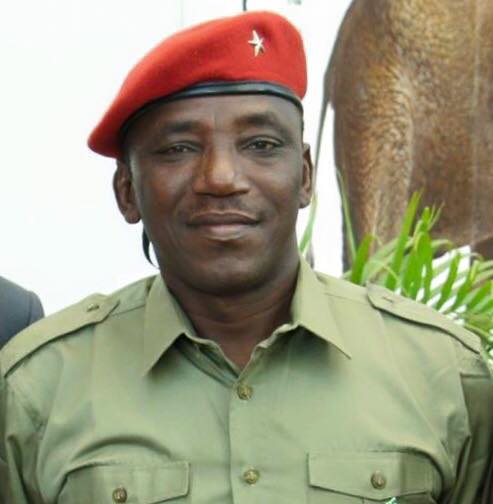
According to a statement, each Federation would have a chairman and three committee members during the elections.
Minister of Youth and Sports, Solomon Dalung, said members of the electoral committees were carefully chosen, based on merit and experience, following wide consultations from the Nigeria Olympic Committee (NOC).
According to the statement, the Athletics Federation will be chaired by Kalami Mohammed, and his members, Tony Uhrobo and Bamidele Elijah.
Table Tennis has Mr Afis Mohammed as Chairman, with Mr Oge Okeke and Melange Nkwo as members.
The Basketball Federation has as its Chairman Brig Gen Yakubu Ndam (rtd), while Boxing has Moda Shishi. The Cricket Federation has Barnabas Ejiogu.
Mr Chris Ogbgo will be Chairman Tennis Federation, while Victor Ogbene is for the Taekwondo Federation.
Meanwhile, Dalung has reaffirmed that the National Sports Festival will hold this year.
Cross Rivers State opted to host the annual event, after the last edition in Lagos State, but has failed to fulfill its promise.
Dalung regretted the constant postponement of the festival and has promised that a new state would be assigned to host the event.
The Sports Minister also challenged state governments to initiate state sports festivals to fish out talents for Nigeria in future competitions.
Dalung promised that arrangement for the National Sports Festival would begin after the elections into the Sports Federations.
Nigeria’s growing recognition in football has continued following the election of the immediate past chief Judge of Lagos, Justice Ayotunde Phillips, as a member of the highly respected FIFA Ethics Committee.
The election was rectified by the Congress of FIFA at it’s 67th Congress in Manama, Bahrain.
Justice Ayotunde became the only African in the FIFA Ethics Committee.
Only last Monday, the Nigeria Football Federation (NFF) President, Amaju Pinnick, who was elected as member CAF Executive Committee in March, was also appointed into the influential Organising Committee for FIFA Competitions.
He also became the first Nigerian to be appointed as President of the Organising Committee for the African Cup of Nations.
By Felix Simire
No fewer than 18 developed countries and 10 developing countries will present their actions to date to reduce greenhouse gas emissions and will highlight key achievements and challenges on the road of implementation of these actions.
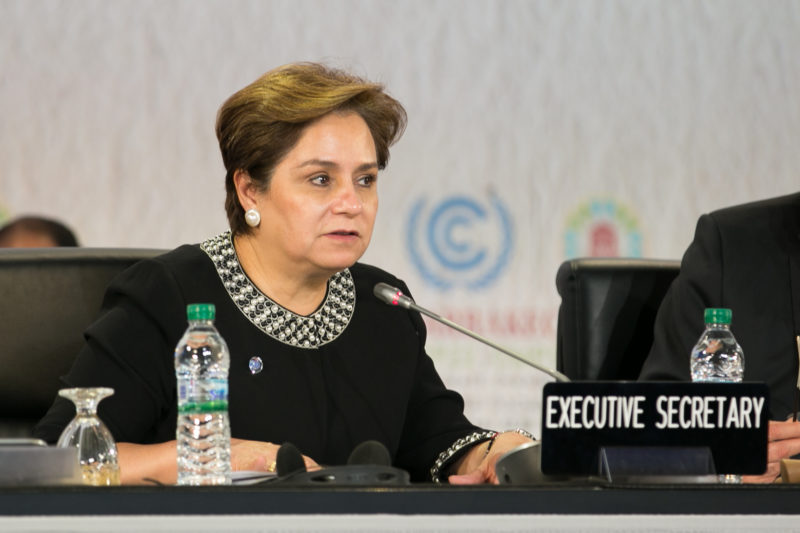
In a fifth session of the so-called “multilateral assessment”, Belarus, Canada, Cyprus, France, Greece, Iceland, Ireland, Japan, Kazakhstan, Liechtenstein, Luxembourg, Monaco, Portugal, Romania, the Russian Federation, Slovenia, Spain and the United States of America will present progress towards achieving their 2020 quantified economy-wide reductions targets.
The multilateral assessment will take place on Friday, May 12 and Saturday, May 13, 2017.
In a third session of the “facilitative sharing of views”, India, Indonesia, Israel, Malaysia, Mauritania, Moldova, Montenegro, Morocco, Thailand, Uruguay will present updates on the status of their greenhouse gas emissions and removals, as well as on their actions to reduce emissions.
Importantly, developing countries have the opportunity to highlight their support needs for the implementation of their actions and also have the opportunity to inform as to the support received through both North-South and South-South cooperation.
The facilitative sharing of views will take place on Monday, May 15.
Both processes give countries the opportunity to showcase their progress in implementing mitigation actions. Fully interactive, developed and developing countries engage in an open interaction with other countries on their national GHG inventories, mitigation actions.
The Nigerian Meteorological Agency (NIMET) on Thursday, May 11, 2017 advised farmers in Borno State to tarry a little before planting crops following the recent rainfall in the state.
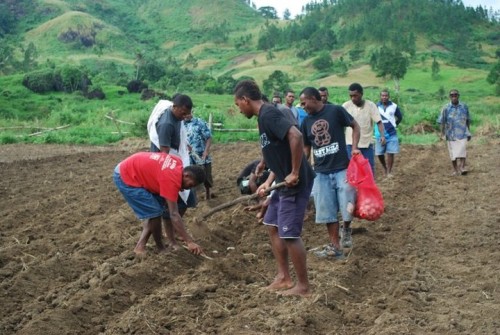
NIMET’s North East Coordinator, Sabo Bitrus, gave the advice while speaking with the News Agency of Nigeria in Maiduguri.
Bitrus was reacting to the ongoing planting of crops by farmers in Maiduguri and Jere after last week’s rainfall.
He said: “We are calling on farmers in Borno to hold on a little.
“The farmers must wait for the actual commencement of the rainy season before planting their crops.
“It is true that we have witnessed some rainfall in different areas recently.
“But we must understand that this does not mean that the rainy season has commenced.
“Before you can correctly say that the season has commenced, a specific amount of rainfall must have fallen.”
Bitrus said that the onset for the 2017 rainy season in Borno had been put at June 20.
He said: “In essence, farmers must wait till June 20, when the actual rainy season will start before they can go to farm and start crops cultivation.”
The World Migratory Bird Day (WMBD) 2017 was observed across the world on Wednesday, May 10, 2017. The theme for the WMBD is: “Their future is our future – A healthy planet for migratory birds and people.”
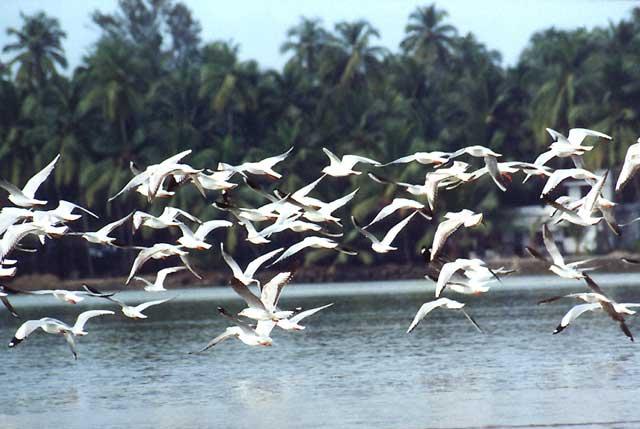
The theme for the year throws light on the topic of Sustainable Development for Wildlife and People.
Indeed, the WMBD 2017 highlights the interdependence of people and nature, and more especially people and migratory animals – in particular birds, as they share the same planet and thus the same limited resources.
The 2017 campaign will aim at raising awareness on the need for a sustainable management of natural resources, demonstrating that birds’ conservation is also crucial for the future of mankind.
An annual global celebration initiated in 2006 by the United Nations, the WMBD is observed with the aim to raise awareness and highlight the need for the protection of migratory birds and their habitats. Observed on the second weekend of May, it was created to help turn the world’s attention to the wonders of bird migration and the need for their conservation.
People around the world celebrate WMBD by organising public events such as bird festivals, education programmes and bird-watching excursions.
The event was founded as an effort by the UN’s Agreement on the Conservation of African-Eurasian Migratory Waterbirds (African-Eurasian Waterbird Agreement).
Features of the Agreement are listed to include:
It is time for the slowly-grinding wheel of justice to crush the Nigeria Agip Oil Company Limited (NAOC) and its subsidiary, which had evaded justice for long.
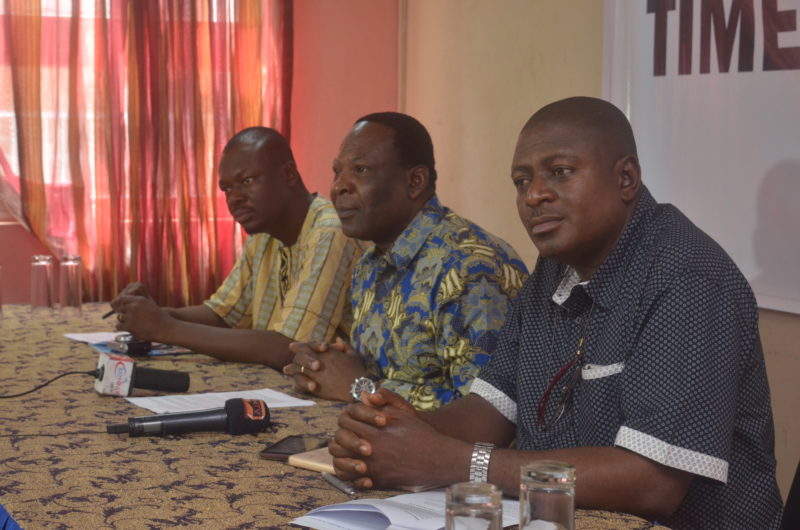
This is the position of the Environmental Rights Action/Friends of the Earth Nigeria (ERA/FoEN) during a media session in Lagos on Tuesday, May 9, 2017.
Executive Director of ERA/FoEN, Dr. Godwin Uyi Ojo, said it took six days for NAOC to agree to a joint inspection visit where it was concluded that “equipment failure” caused an oil spill at Ikebiri community in Bayelsa State. NAOC, he added, operates seven wells and eight pipelines with several flow lines in Ikebiri.
“You will be shocked to know that after that visit, the leak was closed; but the surrounding polluted area of bush was set ablaze in a state-of-the-art clean up technology often deployed by Agip and without the consent of the local community. No other clean-up has taken place since,” he said.
The Ikebiri community comprises several villages in Bayelsa State. Its main economic activities include palm-wine tapping, canoe carving, fishing, farming, animal trapping and traditional medical practices.
The spill
On April 5, 2010 an oil pipeline operated by ENI’s Nigerian operation, NAOC burst 250 metres from a creek north of Ikebiri. The spill affected the creek, fishing ponds and trees essential to the local community, damaging the livelihoods of the local community.
A joint inspection visit led by NAOC on April 11, 2010 cited “equipment failure” as the cause of the spill, for which NAOC/ENI are liable.
NAOC operates seven wells and eight pipe lines with several flow lines in the area. The leak was closed, and the surrounding polluted area of bush was burnt without the consent of the local community. This is common practice, but is an inadequate, dangerous and polluting method for cleaning up oil. No other clean-up has taken place since.
The Ikebiri Community has engaged in discussions with NAOC/ENI for emergency relief materials and compensation. An initial payment of N2 million was made to the community for relief materials. However, to date, the community has received no compensation for damages as a result of the spill. An initial offer of N4.5 million in December 2010 was rejected by the community as insufficient, and ENI has since discontinued discussions with the community regarding compensation.
Significance of the case
The company involved this case is the Italian oil major, ENI. This case is unprecedented in Italy.
Friends of the Earth Nigeria and Friends of the Earth Europe will be supporting Ikebiri in the case against ENI in Milan, Italy, seeking clean-up and compensation for the pollution that ENI has brought to their land in the Niger Delta. The King of Ikebiri is the plaintiff, and the lawyers representing them are Luca Saltalamacchia with Chima Williams supporting from Nigeria.
ERA/FoEN have open lines to the king and members of the community aware of the case.
Optimism
According to Ojo, ERA is very optimistic that the case will yield good fruit.
“We hope that this case will be successful, being the first instance of an Italian company having to face justice in Italy for its actions in destroying the environment overseas,” he says.
According to him, another area that gives stakeholders hope is that the case “will help end the impunity and offer hope to other communities that have suffered damages as a result of pollution from oil wells or pipelines operated by Agip/ENI or any other multinational firm operating in the Niger Delta and elsewhere”.
Consequences
The court case, described as a product of four years of painstaking research and documentation and the patience of the Ikebiri people suffering this ordeal this past seven years, according to the activists, will: